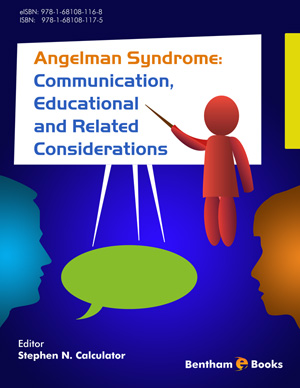Abstract
Augmentative and Alternative Communication (AAC) and related assessment and intervention practices for individuals with AS might be best viewed as fluid, reciprocal processes that are important to the extent that they contribute to individuals’ patterns of participation and inclusion in valued events. This is true irrespective of etiology of AS, severity of challenges, or educational placement. Educators, speech-language pathologists, and others are encouraged to emphasize practices that foster individuals’ independence, autonomy, and quality of life. The use of standardized tests is questioned from this perspective. More viable, ecologically valid alternatives are presented. Several assessment and intervention procedures related to this construct are discussed.
Keywords: AAC, Angelman Syndrome, Alternative communication, Assessment, Augmentative, Disability, Discrepancy analysis, Ecological validity, Education, Generalization, Genetics, Handicap, Intellectual, Intervention, Matrix, Regression, Skill clusters, Self-determination, Standardization.






















